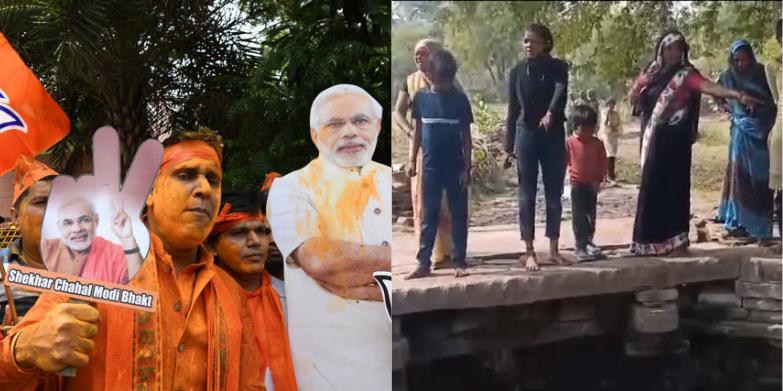In the heart of Madhya Pradesh, a village named Nayakheda is caught in a troubling situation post the recent elections. Amidst the usual anticipation and aftermath of voting, a disturbing trend has emerged: government-controlled bore-wells withholding water from rural residents unless they pledge allegiance to a specific political party, the Bharatiya Janata Party (BJP).
These bore-wells were initially installed by the state minister, Brijendra Singh Yadav, with the intention of providing essential water access to every corner of the village. However, a shocking revelation surfaces where villagers, particularly women in rural areas, are being denied this basic necessity unless they assure the authorities that they voted for the ruling BJP.
Mr. Yadav, shocked by these claims, expressed his surprise over this issue arising post-election. As the Public Health Engineering Minister responsible for these bore-wells, he asserts that their primary purpose was to ensure water supply to every villager, irrespective of their political affiliations.
The villagers narrate a distressing account. They allege that if they do not declare their support for the BJP, those controlling the bore-wells abruptly shut off the water supply and ask them to vacate the vicinity. There are even whispers among the locals about the bore-wells operating clandestinely, only at night, without any notice or information.
This discriminatory practice has drawn sharp criticism towards Chief Minister Shivraj Singh Chouhan’s administration from the opposition Congress party. They accuse the BJP of displaying cruelty by penalizing and depriving those who did not align with their political ideology of the fundamental right to access water.
The broader context of this incident intertwines with the recent elections in Madhya Pradesh, which occurred on November 17. The political battleground primarily involves a direct clash between the Congress and the BJP. The Congress previously held power until a significant political upheaval in 2018, catalyzed by Jyotiraditya Scindia, who presently serves as the Union Aviation Minister. The results of this recent election are eagerly anticipated and will be disclosed on December 3, determining the course of governance in the region.
The incident in Nayakheda paints a distressing picture of the politicization of essential services and the potential consequences faced by those who may choose to exercise their voting rights independently of political influence. It reflects a broader concern about the sanctity of democratic values and the need to ensure that essential services remain free from political manipulation.

